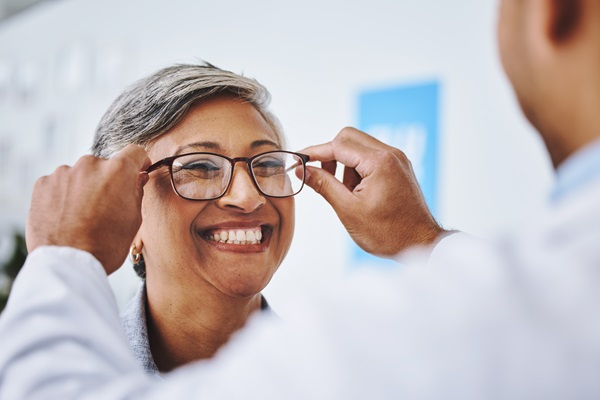How Do Regular Eye Exams Help With Eye Care?

Many people overlook professional eye care until they begin having sight issues. However, the eyes can often be seen as a window into the body's overall health. Therefore, regular eye exams go far beyond determining whether you need glasses or contacts. They are essential for preserving your health and often provide early detection of other conditions inside the body.
Understanding the role of the eyes
The eyes are organs responsible for sensory functions and often communicate to the brain that the body needs to focus or react. Therefore, it is important to pay close attention to and care for each layer of both eyes, which comprises six pairs of cranial nerves. These nerves are responsible for manifesting movements, reflexes, and vision.
What medical conditions can be identified during eye exams?
Some conditions affect the body's organs, while others only affect specific systems. Either way, one's eye health depends on the health of the rest of the body. However, some conditions can occur without causing dramatic symptoms and can only be revealed in their later stages or if a medical professional is looking for them. Some that impact eye care and health include:
- Aneurysms
- Brain tumors
- Cancer
- Diabetes
- Lupus
- Multiple sclerosis
- Strokes
The American Academy of Ophthalmology reports that over 20 medical conditions can be identified through routine eye exams.
Conditions that solely affect the eyes
Aside from these medical conditions, the optometrist can differentiate those that solely affect the eyes, which at times can be more obvious to patients than underlying medical conditions, such as:
Astigmatism
This condition has less to do with eye care and more with the shape of the eye. Astigmatism is characterized as a refraction error, as the shape of the eye is more curved than it should be. It can cause blurred vision and sensitivity to light.
Blindness
The earlier vision loss is detected, the better the chances of receiving the necessary eye care to stave off total blindness, as the condition usually occurs in stages.
Cataracts
This condition manifests as cloudy fields or areas that form on the lenses of the natural eyes. It is a result of broken-down proteins that make up the clear, flexible lens of the eye.
Color blindness
When some of the eye's nerve cells are missing or damaged, one may misinterpret colors and shades or brightness levels. However, this condition does not typically affect one's eye care.
Glaucoma
When fluid builds up behind the eye, it can damage the optic nerve, causing glaucoma. Improper eye care in those with glaucoma can result in partial or total vision loss.
Hyperopia or myopia
Hyperopia refers to patients who see better far away, otherwise known as farsightedness. Myopia refers to patients who see better with objects close up, otherwise known as nearsightedness.
Macular degeneration
When one cannot see an object directly in front of them, but only those past it or around it (peripheral vision), the macula and retina may have been infected.
How often should patients receive an eye exam?
While frequency can vary depending on specific eye care needs, the American Optometric Association, or AOA, recommends eye exam schedules based on patients' ages. Eye exams are necessary every two years for patients under six years old. Annual eye exams are recommended for people between six and 18 years old. After age 18, one's eye and organ development will come to a standstill for some time. Therefore, they can begin receiving eye exams every two to three years until the age of 65.
What happens during an eye exam?
The specifics of an eye exam will vary depending on the body's overall state and the level of eye care the patient currently needs. However, basic tests will set the foundation for every evaluation. At the beginning of the appointment, the optometrist may find it necessary to use special eye drops to help dilate the eyes. They will use machinery and tools to evaluate each layer of the eyes and how they function, checking for general signs of infection or inflammation, visual acuity (how well the eyes can see), and the curvature of the cornea and lens. The optometrist will also check the patient's ability to focus on an object at various points in the room and how well they work together.
Exams can take 25 minutes to an hour, depending on the optometrist's findings. They will provide recommendations for optimal eye care and whether prescription glasses or contact lenses are necessary. If so, the patient will have options before they leave. They can choose prescription glasses or contacts, which will be made in an offsite lab and ready for pickup at the office in about two weeks.
Receive optimal eye care in the Dallas area
Preserving your eye health is one of the best things you can do for your overall health. So, make sure to undergo an evaluation before there is an issue with your vision. Optimal eye care is available in the Dallas area. Contact our office for more information.
Request an appointment here: https://www.texasoptical.net or call Texas Optical at (214) 771-7333 for an appointment in our Dallas office.
Check out what others are saying about our services on Yelp: Read our Yelp reviews.
Recent Posts
Dry eye treatment is important when occasional irritation becomes ongoing discomfort that interferes with daily activities. Many individuals experience dryness, burning, or a gritty feeling in the eyes from time to time. However, when symptoms start to affect reading, screen use, or time outdoors, a structured approach to diagnosis and care helps protect comfort and…
Myopia control focuses on slowing the progression of nearsightedness, primarily in children and teens, to help protect long-term eye health and day-to-day vision. Myopia occurs when the eye grows too long or the cornea curves too steeply, which causes distant objects to appear blurry. As the prescription increases, the risk of future eye disease also…
Retinal photography gives optometrists a detailed view of the back of the eye. When done regularly, they are often able to spot early signs of disease before symptoms affect daily vision. This advanced imaging tool helps create a clear record of eye health over time and supports smarter decisions about treatment and follow-up care. Learning…
Red, itchy eyes can affect your everyday comfort and reduce overall well-being. It is important to seek effective vision care from the first sign of irritation. Proper attention to symptoms, underlying causes, and healthy habits ensures stronger long-term eye health and greater day-to-day clarity. Redness and itchiness often stem from several common triggers. These include: Allergic…


